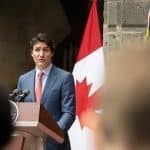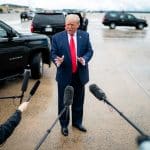In a world that seems to teeter on the brink of chaos, South Korea finds itself in turmoil that echoes the struggles faced by many nations throughout history. A recent political crisis has unfolded as President Yoon Suk Yeol declared martial law in a desperate bid to maintain control amid rising tensions. This act, reminiscent of authoritarian measures from the past, raises profound questions about governance, democracy, and the delicate balance of power.
The situation in South Korea is alarming, not only for its citizens but for the global community, which watches with a mix of concern and trepidation. The president’s declaration came in response to perceived threats from political opposition, yet the parliament’s swift rejection of such a move—180 votes against—reflects a fundamental disconnect between leadership and the will of the people. This kind of political instability evokes memories of other nations where leaders used crises as opportunities to consolidate power, often at great human cost.
One cannot help but consider the historical parallels that mark this unfolding drama. The world has seen martial law imposed as a means of quelling dissent and transforming democratic systems into authoritarian regimes. The specter of unchecked power looms large, reminding us that the balance between safety and tyranny is precarious. When leaders prioritize their political survival over the democratic principles that empower them, it inevitably leads to societal fractures that can spark broader conflicts.
As the South Korean military occupied the parliamentary building, a sense of panic permeated the environment. This instability brings to mind warnings from past leaders who cautioned against letting fear dictate decision-making. Political chaos often invites external threats; as discussions turn toward North Korea and other geopolitical adversaries, one can easily see how swiftly relations can deteriorate, leading to greater conflicts. The potential for misunderstandings or miscalculations in such a tense environment underscores the fragility of peace and the importance of measured governance.
On a deeper level, this situation invites reflection on the moral responsibilities of leaders. History teaches us that power can corrupt, and with power often comes the temptation to act in self-interest. As citizens, it is crucial to demand accountability from those in positions of authority. The current generation witnessing unrest in South Korea must remember the virtues of democratic engagement and civic participation. The notion that the average person is blissfully unaware of geopolitical tensions unfolding around them is troubling; it speaks to our collective apathy in the face of rising challenges.
In light of these events, it becomes necessary to acknowledge our world’s interconnectedness. As nations grapple with internal strife, repercussions can be felt far beyond their borders. South Korea’s situation urges us to consider historic lessons learned from past political upheavals and strive for a greater understanding of our global landscape. As stewards of democracy, we must advocate for principles that uphold freedom, dignity, and respect for one another in times of uncertainty. The long shadows of history remind us that fate can intertwine with alarming speed—serving as both a cautionary tale and an urgent call to action for all who cherish liberty.




